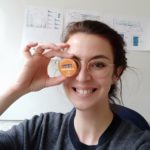Link to Pubmed [PMID] – 35486646
Link to DOI – e101019110.1371/journal.pgen.1010191
PLoS Genet 2022 Apr; 18(4): e1010191
Whole genome sequencing is increasingly used to diagnose medical conditions of genetic origin. While both coding and non-coding DNA variants contribute to a wide range of diseases, most patients who receive a WGS-based diagnosis today harbour a protein-coding mutation. Functional interpretation and prioritization of non-coding variants represents a persistent challenge, and disease-causing non-coding variants remain largely unidentified. Depending on the disease, WGS fails to identify a candidate variant in 20-80% of patients, severely limiting the usefulness of sequencing for personalised medicine. Here we present FINSURF, a machine-learning approach to predict the functional impact of non-coding variants in regulatory regions. FINSURF outperforms state-of-the-art methods, owing in particular to optimized control variants selection during training. In addition to ranking candidate variants, FINSURF breaks down the score for each variant into contributions from individual annotations, facilitating the evaluation of their functional relevance. We applied FINSURF to a diverse set of 30 diseases with described causative non-coding mutations, and correctly identified the disease-causative non-coding variant within the ten top hits in 22 cases. FINSURF is implemented as an online server to as well as custom browser tracks, and provides a quick and efficient solution to prioritize candidate non-coding variants in realistic clinical settings.

